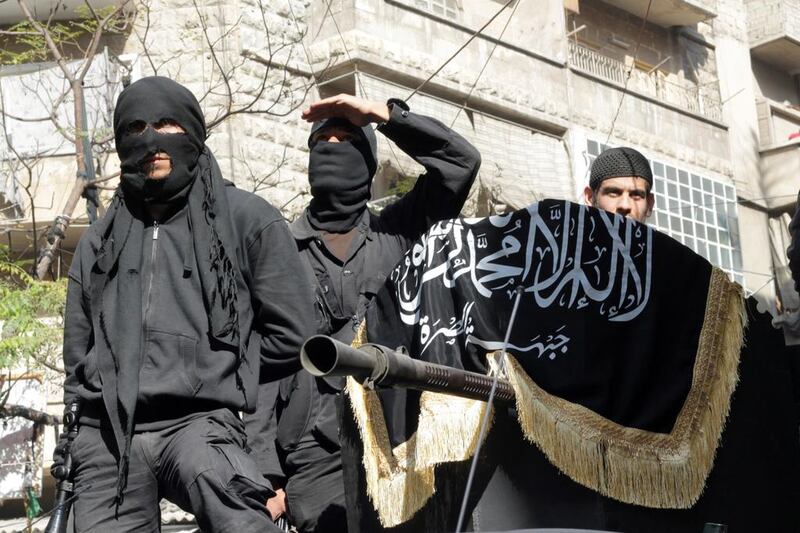Foreign Correspondent
BEIRUT // Saudi Arabia’s decision to label two of the fiercest rebel groups fighting the regime of Bashar Al Assad as “terrorists” is another sign the world is belatedly waking up to the threat extremists pose to regional governments, Europe and the US.
Jabhat Al Nusra and the Islamic State of Iraq and the Levant (ISIL) are major players, and both are openly affiliated to Al Qaeda, which begs the question why has it taken Riyadh so long to put them on its terrorist list?
The answer, in part lies with the miscalculations that were made as the Syrian uprising began and developed. Many of those mistakes were made by Mr Al Assad, with his core belief that peaceful demands for political change could be suffocated with a liberal application of appalling brutality.
Instead, he fanned the flames of rebellion and finds himself in a war of his own creation.
But, as the Syrian regime’s refusal to reform, and its violence grew more entrenched, miscalculations were also made by Syria’s opposition and their supporters, particularly in the Gulf, and in Turkey.
One of those mistakes concerned the movement of Islamic radicals.
In Ankara, Riyadh and Doha, a lazy calculation seems to have been made that Mr Al Assad was weak and that Syrian rebels, given some guns and some help by foreign extremists willing to drive car bombs into mukhabarat bases, would have little trouble in knocking the regime down.
And so, for months – it is probably not an exaggeration to say for years – little was done to stop foreign fighters travelling to Syria.
But that only played into Mr Al Assad’s hands, spreading fears of Islamic radicalism and galvanising Shiite Iran and Hizbollah into total commitment to propping up his regime, which proved more durable than expected.
Those foreign fighters, many of them in ISIL, played a significant role in turning the Syrian revolution into the highly sectarian, proxy war it now is, bloodily unbalancing a region that has long been governed on the principle that stability is paramount.
Saudi Arabia has begun quietly but distinctly shifting methods on Syria, this month taking the file away from the swashbuckling intelligence chief Prince Bandar Bin Sultan and handing it to the more watchful interior minister, Prince Mohammed bin Nayef, known for his counter-terrorism work.
ISIL and Al Nusra are well-funded groups and some of their money has been sourced back to private donations from the Gulf. Their classification as terrorist organisations may help disrupt that flow of cash.
However the effect on the ground, certainly in the short term, seems certain to be negligible. For ISIL the enmity of the Saudi royal family will be a badge of honour - it wants the Saudi royal family overthrown eventually.
Al Nusra, run by the cautious and politically astute Abu Mohammad Al Jolani, may be less celebratory in its new status but it is also likely to have some immunity to any impacts. As an Al Qaeda group, it too has no love for the Saudi royal family.
Al Nusra has been careful to cultivate its roots in Syria, knitting itself into society and winning the respect of other rebel groups it fights alongside. There is little indication it is dependent on Saudi Arabia for money or support.
What may harm the group, and ISIL, is if the new designation means the Saudi authorities are more aggressive in going after the informal support networks the two factions have in the kingdom.
Perhaps where there was once a blind eye, there will now be watchfulness that could start harming Al Qaeda’s bank accounts and weapons depots.
psands@thenational.ae





